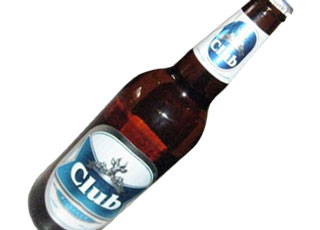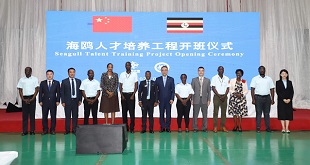
By Joseph were
Long-necked beer bottle named brewer’s 18% growth
Questions about why Nile Breweries is battling to retain sole use of the 500 ml long neck bottle on the Ugandan market have finally been answered.
The long-necked bottle is one of three factors that Nile’s parent company, SABMIller of South Africa, says have contributed to its impressive bottom-line in the last six months.
The others are the Nile’s healthy brand portfolio and the launch of Nile Gold as a premium offering in a 330ml returnable bottle.
Together, these factors ensured that Nile’s lager volumes grew 18%, the highest in the group according to SABMiller’s latest financial figures.
Nile Breweries introduced the bottle last year for its Nile Special, Club Pilsner and Castle Milk.
Just two months into the period covered by the current figures, Nile increased its brewing capacity by 20 with an expansion commissioned in June.
It is now locked in a lawsuit with market rival, Uganda Breweries Ltd, which is now also using the long-necked bottle.
Nile claims “the uniquely designed long neck 500 ml beer bottle is registered by M/s Nile Breweries Ltd as its trade mark under No. 32118 “ Class 32 of the Trade Marks Act and also as an industrial design with ARIPO under NO.AP/D/00176.
Uganda Breweries meanwhile insists that the bottle is ‘generi’and ‘cannot be the subject of any exclusive rights as claimed’.
As the dispute persists, drinks bottled in the long-necked bottle have become very popular and Nile has been raking in profits making it one of the better performers in the SABMiller group.
Over the same period, SABMiller is reporting a 31 percent drop in Net profits for the six months period ending September 30.
SAB sales dropped 21% from $11.17-billion to $8.85-billion over the same period, and Net profit at SABMiller dropped 31 percent from US$1.423-billion to US$973-million.
The drop is blamed mainly on weaker currencies in emerging markets which contribute up to 90% of its profits. The weak currencies reduced the value of sales and drove up input costs.
The brewer consumption of beer also dropped in many of the countries in which it operates.
SAB beer volumes declined a mere 1 percent, which was less than had been predicted because its operations in China and other emerging markets performed well.
Asian beer volumes were up 9% on an organic basis.
In China, beer volumes were up 15% in a market that grew by 6%.
Beer volumes were up 3% in Africa on an organic basis. Uganda, Zambia and Mozambique grew in volumes. However, soft economic conditions contributed to reduced volumes in Tanzania, and Botswana continued to be impacted by the 30% social levy on alcoholic beverages imposed in November 2008.
In Tanzania, Lager volumes declined by 6% but market share improved marginally reflecting continued improvements in sales execution and outlet penetration. The Tanzania economy was impacted more than other African markets by reduced agricultural exports and lower foreign direct investment, and also suffered from extreme drought conditions in the northern and central regions.
During the period, SAB successfully re-launched Ndovu Lager in a 375ml green returnable bottle with enhanced packaging.
SABMiller does not operate directly in Kenya. Basing on an agreement with EABL, the parent company of Uganda Breweries, SAB exited the Kenya market on the understanding that EABL would produce and distribute its products. In exchange, SAB’ subsidiary, Tanzania Breweries Ltd, would do the same with EABL’s products in that country.
The agreement has since broken down over EABL’s insistence on returning to directly operate in the Tanzanian market.
As part of its continuing full beverage portfolio strategy, SAB acquired a water business in Ethiopia and a non-alcoholic beverage business in Zambia.
New local premium lager beers were introduced in five markets. Apart from Uganda, capacity was expanded in Ghana and a new brewery completed in Southern Sudan. New plants in Tanzania, Mozambique and Angola are nearing commissioning.
 The Independent Uganda: You get the Truth we Pay the Price
The Independent Uganda: You get the Truth we Pay the Price


